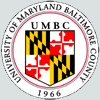| |||||||||||||||||||
Tips:  Range on the Protein: Protein ID Protein Position Domain Position: 
|
|---|
Weblogos are Copyright (c) 2002 Regents of the University of California
| DMDM_info@umbc.edu | 1000 Hilltop Circle, Baltimore, MD 21250 | Department of Biological Sciences | Phone: 410-455-2258 |




 Ras-GTPase Activating Domain of IQ motif containing GTPase activating protein 1. IQGAP1 is a homodimeric protein that is widely expressed among vertebrate cell types from early embryogenesis. Mammalian IQGAP1 protein is the best characterized member of the IQGAP family, and contains several protein-interacting domains. Human IQGAP1 is most similar to mouse Iqgap1 (94% identity) and has 62% identity to human IQGAP2. IQGAP1 binds and cross-links actin filaments in vitro and has been implicated in Ca2+/calmodulin signaling, E-cadherin-dependent cell adhesion, cell motility, and invasion. Yeast IQGAP homologs have a role in the recruitment of actin filaments, are components of the spindle pole body, and are required for actomyosin ring assembly and cytokinesis. Furthermore, IQGAP1 over-expression has also been detected in gastric and colorectal carcinomas and gastric cancer cell lines.
Ras-GTPase Activating Domain of IQ motif containing GTPase activating protein 1. IQGAP1 is a homodimeric protein that is widely expressed among vertebrate cell types from early embryogenesis. Mammalian IQGAP1 protein is the best characterized member of the IQGAP family, and contains several protein-interacting domains. Human IQGAP1 is most similar to mouse Iqgap1 (94% identity) and has 62% identity to human IQGAP2. IQGAP1 binds and cross-links actin filaments in vitro and has been implicated in Ca2+/calmodulin signaling, E-cadherin-dependent cell adhesion, cell motility, and invasion. Yeast IQGAP homologs have a role in the recruitment of actin filaments, are components of the spindle pole body, and are required for actomyosin ring assembly and cytokinesis. Furthermore, IQGAP1 over-expression has also been detected in gastric and colorectal carcinomas and gastric cancer cell lines. No pairwise interactions are available for this conserved domain.
No pairwise interactions are available for this conserved domain.














